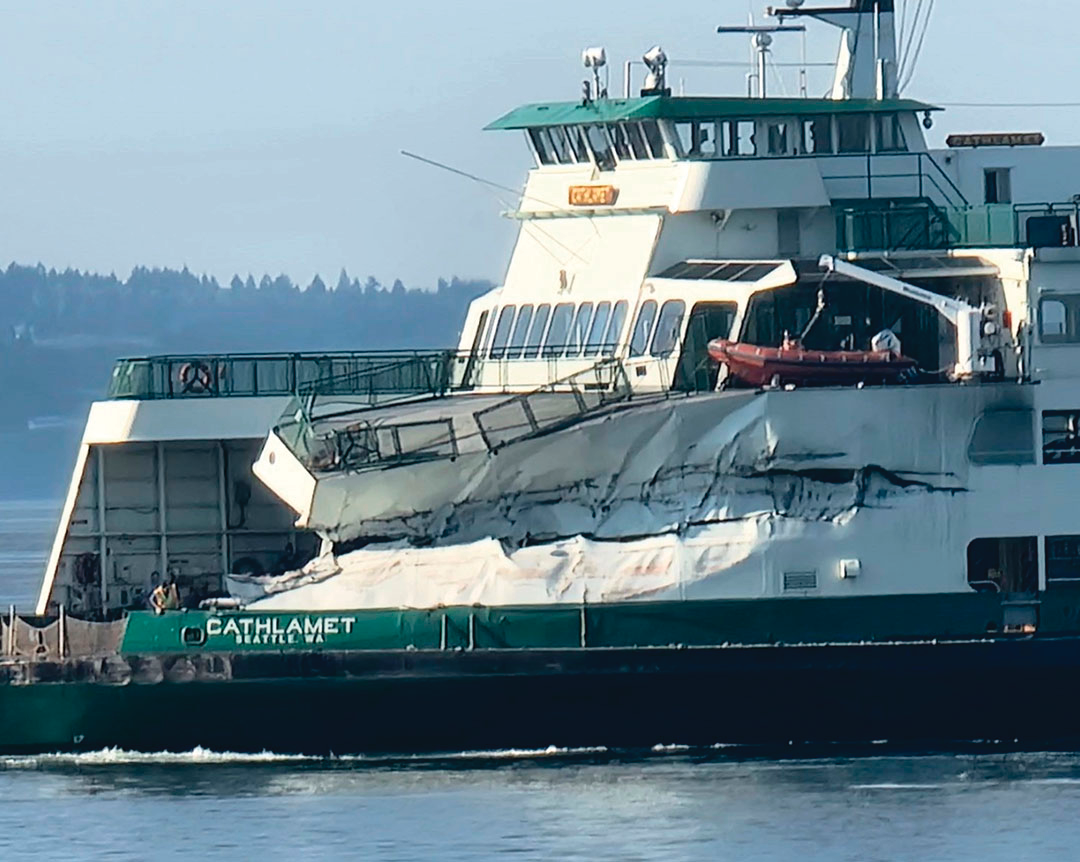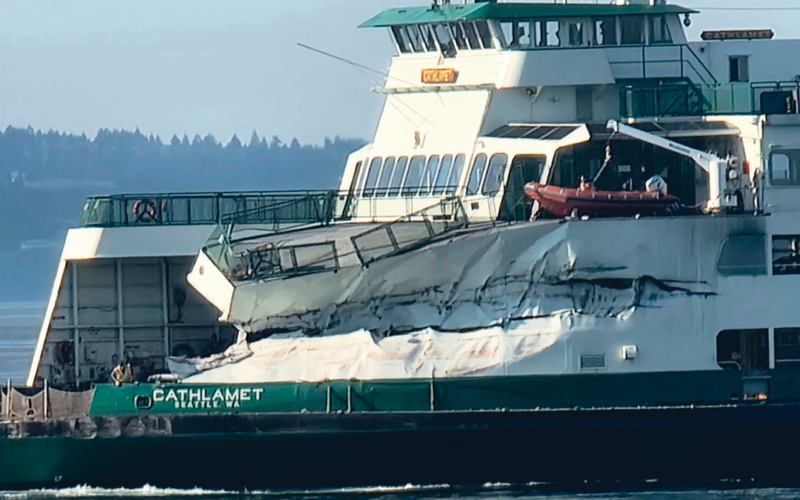
The U.S. Coast Guard has issued a summation report laying out the mandates for the reporting of marine casualties involving commercial vessels, as well as the ramifications of violating the rules as laid-out by federal law.
Title 46 Code of Federal Regulations (CFR), Part 4.03-1, defines a “marine casualty” as “a casualty or accident involving a vessel – other than a public vessel – that occurs upon the navigable waters of the United States, its territories, or possessions.”
According to the report’s author, retired Coast Guard Hearing Officer, CDR Mark E. Hammond, 46 CFR 4.03-1(b) “indicates the term ‘marine casualty’ applies to the actual events caused by or involving a vessel and lists the specific occurrences or incidents that constitute a marine casualty,”
The list includes, but is not limited to “any fall overboard, injury, or loss of life of any person, or any occurrence involving a vessel that results in grounding; stranding; foundering; flooding; collision; allision; fire; explosion; the reduction or loss of a vessel’s electrical power, propulsion, or steering capabilities; or failures or occurrences, regardless of cause, which impair any aspect of a vessel’s operation, components, or cargo.”
Also included are “any other circumstances that might affect or impair a vessel’s seaworthiness, efficiency, or fitness for service or route; any incident involving significant harm to the environment; any occurrences of injury or loss of life to any person while diving from a vessel and using underwater breathing apparatus; or any incidents described in CFR 4.05–1(a).”
Reportable Marine Casualties 46 CFR 4.05-1 contains the requirement for immediate notice to the Coast Guard of certain marine casualties involving vessels with Paragraph (a) of this subpart reading that, “immediately after addressing the resultant safety concerns, the owner, agent, master, operator, or persons in charge, shall notify the nearest Sector Office, Marine Inspection Office, or Coast Guard Group Office whenever a vessel is involved in a marine casualty.”
“Often mariners violate the immediate notice requirement but just as often there are legitimate reasons for a delay in reporting a marine casualty. It is necessary to know and document the facts and circumstances surrounding what at first might appear as a failure to provide immediate notification,” wrote Hammond.
“Details that should be known and analyzed might include the type of casualty and why pursuant to regulation it qualifies as a marine casualty requiring reporting, the date and time of occurrence, and how it was discovered,” he stated.
“If there is a substantial delay in notification, it would be important to know and document when the party was aware of the casualty, and how the party had the opportunity to make timely notification but failed to do so.”
For cases of untimely notifications, “careful consideration should be given to any actions that were required of the party to address any safety concerns as a result of the casualty.”
And in cases of the lack of any reporting, “perhaps what first appeared as a marine casualty requiring reporting was instead some event that did not require reporting,” wrote Hammond.
“Only after analyzing the details can a fair assessment be made as to whether there was failure to immediately report a marine casualty.”
In addition to the immediate notice requirement, it’s mandated that a written report be submitted to the Coast Guard.
According to 46 CFR 4.05-10(a), the owner, agent, master, operator, or person in charge, shall, within five days, file a written report of any marine casualty required to be reported under 4.05-1. The written report must be submitted on Form CG2692 (Report of Marine Accident Injury, or Death).
“It is important to note that, in accordance with 4.05-10(b), if the 2692 is filed without delay after a marine casualty, then it serves to satisfy the immediate notice required by subpart 4.05-1,” wrote Hammond.
New language was added to the regulations in 2005 to include “any occurrence involving a vessel that involves significant harm to the environment” as a reportable marine casualty which requires the submission of a Form CG2692.
46 CFR 4.03-65 defines “significant harm to the environment,” which is categorized as “the discharge of oil into the navigable waters of the United States as set forth in 40 CFR 110.3, which causes a film, sheen, or discoloration of the surface of the water and a discharge of a hazardous substance in quantities equal to or exceeding in any 24-hour period, the reportable quantity determined in 40 CFR 117.”
If a marine casualty exclusively “involves an occurrence involving significant harm to the environment, a report made pursuant to 33 CFR 153.203, 40 CFR 117.21, or 40 CFR 302.6 satisfies the immediate notification requirement of 46 CFR 4.05-1,” added Hammond.
For example, “if a commercial tug operator experiences a discharge of oil from his vessel and he/she makes an immediate notification to the National Response Center in accordance with 33 CFR 153.203, the immediate notice requirement of 46 CFR 4.05-1 is satisfied,” though a written report is still necessary.
Recreational vessels are excluded from the requirements of 46 CFR 4.05 and fall under the reporting requirements of 33 CFR 173.51.

